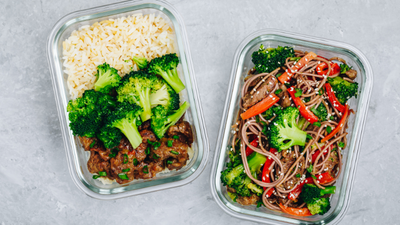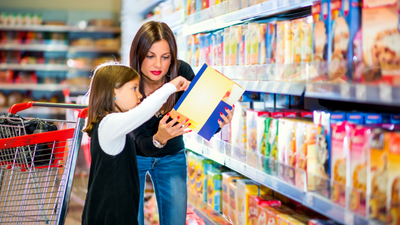Food Allergen Labels

Estimated reading time: 4 minutes
Food Allergen Labels – Why They’re Important
The food we eat undergoes a lot of inspection and must meet many requirements before it eventually reaches us – this is to keep us safe and to stop serious incidents of disease.
However, between the food industry lacking in adhering to strict standards and population’s general mistrust when it comes to correct food allergen labels, there is a lot of room for improvement.
Food allergen labels, whether it be at manufacturing, packaging or selling stage, are a vital aspect of food safety and keeping customers safe. Failing to declare allergens on food labels is a breach of regulations, can put lives at risk and harm your reputation.
Food allergen labels for prepacked food
Prepacked for direct sale (PPDS) is food that is packaged at the same place it is sold to customers. The food product will be in the packaging before it is ordered or selected. PPDS does not include food packed by another business.
Since October 2021, the requirements for prepacked for direct sale (PPDS) food labelling changed in the UK. The requirements state that businesses that produce and sell PPDS food must label it with the full ingredients list. This includes specific allergenic ingredients emphasised within the list.
There are two ways food allergen labeling can be provided. It can be before the purchase of the food on a website, catalogue or menu, or when the food is sold – through a separate menu or allergen stickers on food.
Since the introduction of Natasha’s Law, this has been the minimum standard for food packaging.
Food allergen labels for manufacturers
If you produce pre-packed food for sale elsewhere, food allergen labelling requirements are set out in EU Food Information for Consumers Regulation.
Allergen labels apply to any food that is put into packaging before being placed on sale. This applies to products that:
- Are fully or partly enclosed by packaging.
- Is, by the manufacturers standards, ready for sale.
- Cannot be tampered with or consumed without opening the packaging.
Allergen labelling is only applied after a thorough risk assessment. Within this assessment, there are two things the packaging shoulder consider: if it needs a ‘may contain’ or ‘free from’ label.
If a label states that your product is ‘free-from’ an allergen, it has to be based on thorough precautions that ring true to the food manufacturing and packaging process. This process should absolutely ensure that final product is completely free of the allergen stated.
There are real-life consequences to not adhering to strict processes and mis-labelling possible or ‘free-from’ food allergens.
If there is a risk of a food product being affected by allergen cross-contamination, the label should include one of the following statements:
- “May contain …”
- “Not suitable for someone with … allergy.”
Avoiding cross-contamination
At both a manufacturing and packaging level, cross-contamination is one of the most easy-to-miss concerns when it comes to food allergen labelling.
There is a possibility almost any food product can contain allergens that do not occur naturally. Rather, they have been contaminated with allergens due to being stored or prepared around other food products.
Cross-contamination can occur during food preparation or may be brought in through other products and ingredients. Generally, dry foods such as cereals, chocolate, and nuts are at greater risk of cross contamination with allergens.
It is the responsibility of the food product seller to make sure that any possible cross-contamination is noted, as customers cannot have control if they aren’t informed.
Those with serious and life-threatening food allergies will need to be aware of possible cross-contamination so they can avoid those products.
Managing food allergen labels and cross-contamination is a constant process that food manufacturers and handlers need to uphold. Good practice is achieved by implementing standards and procedures that are based on the rules provided b governing bodies.
Applying food hygiene knowledge
We have a range of Level 2 food hygiene courses for catering, manufacturing, retail and home businesses.
Our friendly customer support team is always happy to talk through your food hygiene training options. Why not give us a call on 01327 552136, email us at hello@smarthorizons.co.uk, or use the live chat feature on this website to speak to us during office hours.
Related Links




